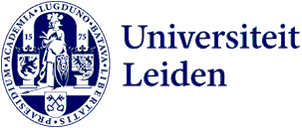What stimulates teacher professional learning and collaboration?
In secondary education, teacher collaboration is used to further teachers’ professional development. In her dissertation, Loes de Jong (PhD candidate at ICLON) examines how various collaborative initiatives stimulate teacher learning. Her thesis defence is on 20 May 2021.
Do what works
Various collaborative initiatives such as professional learning communities, lesson study and data teams are organised at schools because they are thought to help facilitate teachers’ professional development. However, not enough is known about the relationship between the different types of collaboration and teachers’ learning outcomes. What works for one teacher or group of teachers with respect to collaboration and stimulating learning, does not necessarily work for another teacher or teacher group.

Culture of collaboration
The first aim of this dissertation was to examine how teacher collaboration can be promoted in schools. One of the premises on which this research was based was that intensive types of collaboration (e.g. peer-to-peer lesson observation and analytical discussion) provide the most learning potential for teachers. The second aim was to explore and verify this premise using multiple case studies.
One of the conclusions of the dissertation is that individual, group and school factors affecting this type of collaboration are closely linked, and should therefore not be considered separately. However, one factor appears to have a direct effect on collaboration, and that is whether a school encourages, coordinates and facilitates collaborative and learning initiatives for teachers.
Furthermore, it would appear that the progress and learning potential of collaborative initiatives for teachers strongly depend on a school’s existing collaborative culture. Collectively reflecting on teacher professional learning and student learning processes, and designing lesson plans and experimenting with them promotes teacher learning. Support in this respect is essential, particularly if the two groups are not used to learning collaboratively.
Finally, this thesis shows that constructive criticism in discussions between teachers can have a positive impact on their learning process. Another crucial factor for teacher professional learning is that teachers continue to participate and share responsibility.

Facilitating professionalisation
Although factors such as motivation and the availability of time and facilities are essential for promoting teacher professional learning, such conditions are, in practice, not a matter of course.
Establishing organisational structures in schools is one recommendation that makes professionalisation and cooperation possible. It is also important that cooperation and collaborative professionalisation are discussed and expressly evaluated during activities such as team meetings and appraisals. This dissertation also highlights the role of external support in organising teacher meetings, facilitating teacher participation in learning activities, and directing teacher discussions. Recognising and anticipating opportunities and challenges in a teacher group, in terms of shared leadership and responsibilities, is an important factor for stimulating teacher learning.
